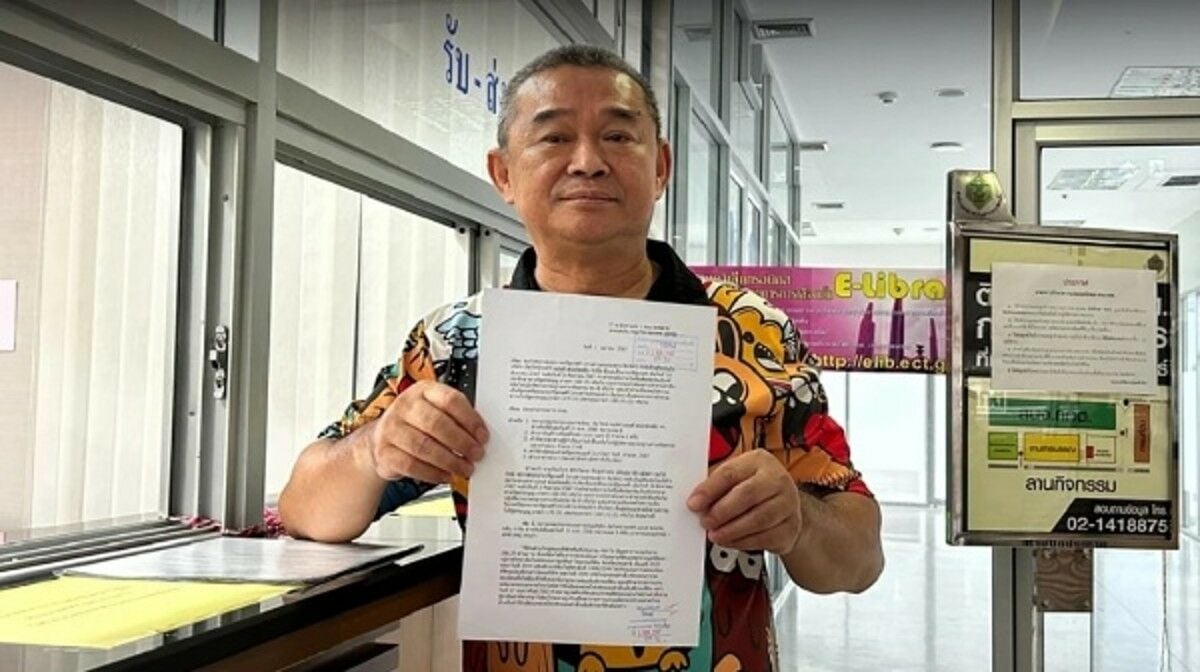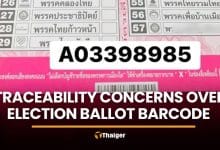Paetongtarn’s anti-graft lawsuit over 30% stake rocks government

In a fresh scandal targeting Thailand Prime Minister Paetongtarn Shinawatra, political firebrand Ruangkrai Leekitwattana has filed a complaint with the Election Commission (EC), accusing her of violating anti-graft laws by holding a significant company stake post-election.
Ruangkrai claimed that Paetongtarn retained a 30% stake in Alpine Golf and Sports Club after being appointed PM in August.
According to Ruangkrai, the premier transferred the shares to her mother, Khunying Pojaman Damapong, on September 3 but only registered the transfer a day later. He argues this is a direct breach of the National Anti-Corruption Commission (NACC) Act, which prohibits Cabinet members from holding more than 5% of shares in any company.
Despite suggestions of a 15-day grace period, Ruangkrai was adamant.
“The law is clear. No allowances are made for a transitional period.”
The complaint also digs deeper, linking Paetongtarn’s involvement with Alpine Golf and Sports Club to an earlier controversy. The Supreme Administrative Court previously ruled that the temple land on which the club is built was unlawfully sold to the company. This, according to Ruangkrai, adds to the ethical concerns surrounding the premier’s conduct.
Ruangkrai, a Palang Pracharath Party (PPRP) member, has become known for his high-profile petitions and legal manoeuvres. While critics see his actions as part of a proxy war between PPRP leader Prawit Wongsuwan and the ruling Pheu Thai Party, the accusations have sparked widespread political debate.
Adding fuel to the fire, Ruangkrai had earlier filed another complaint, claiming the 38 year old Thai premier violated the Constitution by making a mini heart gesture while wearing her government uniform, reported The Nation.
ORIGINAL STORY: Activist questions Paetongtarn’s resignation from family firms
Political activist Ruangkrai Leekitwattana has pressed the Election Commission (EC) to investigate whether Prime Minister Paetongtarn Shinawatra properly resigned from executive positions in 20 family-owned companies before her election.
Ruangkrai questioned if Paetongtarn adhered to the Department of Business Development’s procedures when stepping down from roles in firms associated with her family.
Failure to resign appropriately would violate Section 187 of the constitution, which prohibits ministers from holding over 5% of shares in a commercial firm or being employed by a private company.
Ruangkrai also examined Deputy Interior Minister Sabida Thaised’s resignation from her executive post and shareholdings in a private firm following her appointment. He noted that Sabida, daughter of former Deputy Interior Minister Chada Thaised, appeared to have complied with the stipulated procedures, raising further questions about Paetongtarn’s case.
Ruangkrai emphasised he was merely exercising his rights under Sections 41 and 50 of the constitution and respected the decisions made by independent public agencies.
Last month, Ruangkrai petitioned the poll agency to investigate the prime minister’s status, questioning the date of the 38 year old PM’s resignation from the family companies.
Paetongtarn was elected prime minister by the House of Representatives on August 16, succeeding Srettha Thavisin, who was dismissed from office by the Constitutional Court.
In his petition, Ruangkrai asked the EC whether Paetongtarn had resigned from all executive roles in the family’s companies by August 15, and why those resignations were registered on August 19, three days post-election.
Ruangkrai claimed Paetongtarn authorised a close aide to handle the resignation documents on August 15, just a day after the Constitutional Court dismissed Srettha from office. The documents were submitted to the Department of Business Development on August 19, reported Bangkok Post.
“Paetongtarn gave her aide the authority to do this just one day after the Constitutional Court ruled to dismiss Srettha from office.”
Latest Thailand News
Follow The Thaiger on Google News:


























